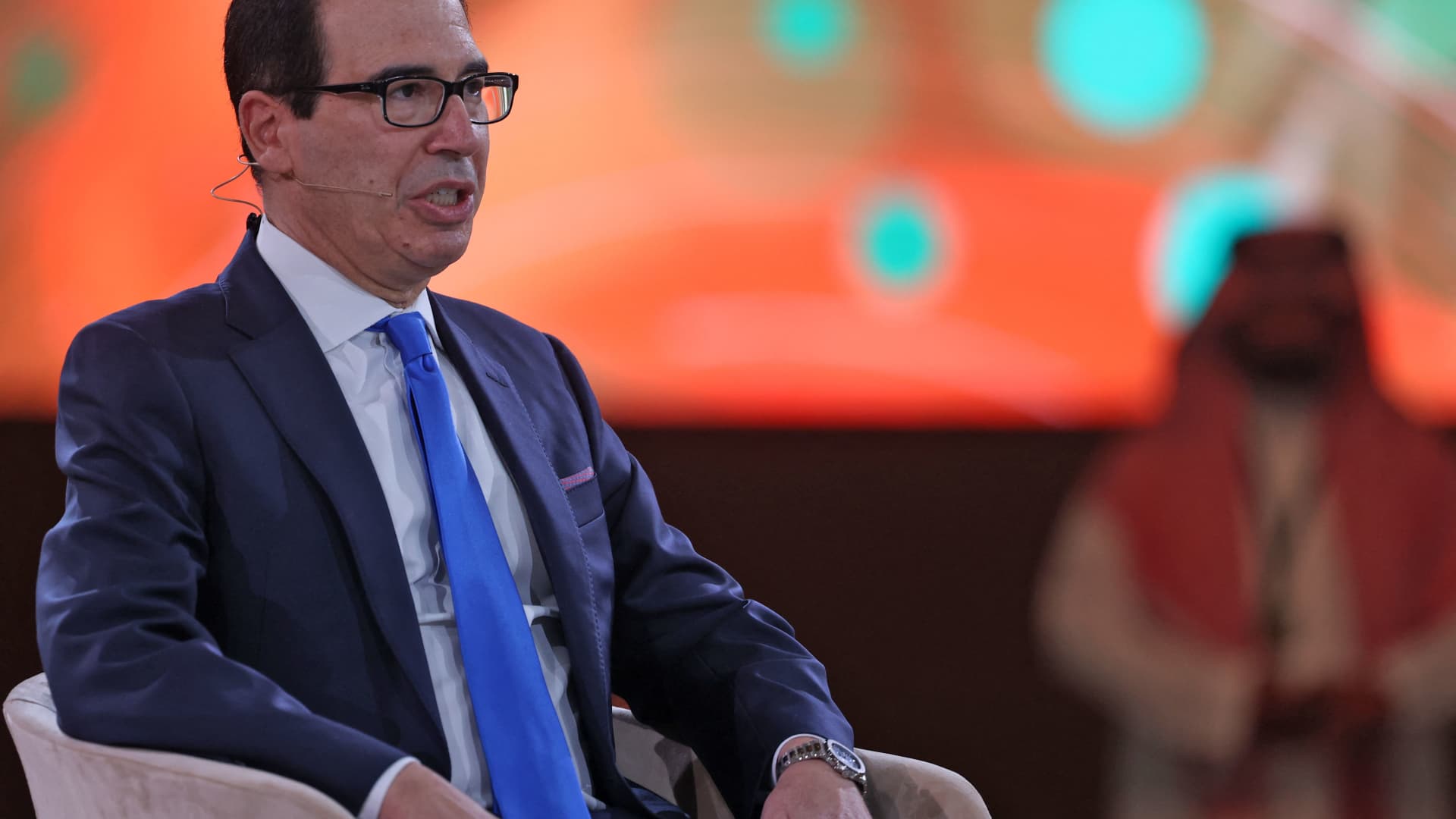Former U.S. Treasury Secretary Steve Mnuchin described the G-7’s plan for a price cap on Russian oil as “ridiculous.”
Speaking to CNBC’s Hadley Gamble during a panel at the Milken Institute’s Middle East and Africa Summit, Mnuchin said the idea was “not only not feasible, I think it’s the most ridiculous idea I’ve ever heard.”
He added that while there were no certainties, sanctions on Russia and Russian officials — which the U.S. and other nations have continued to roll out since Russia’s unprovoked invasion of Ukraine — could have had an impact before the war started rather than after.
“Sanctions would have had a big impact back then. I think the problem now is that there’s limited options … there’s parts of the world that are now buying Russian oil outside of U.S. sanctions,” he said.
“But look, a price cap, the market is going to set the price. So if you put sanctions on at higher prices, in a way you’re just making the situation worse, in my opinion.”
The Group of Seven nations — the U.S., Canada, France, Germany, Italy, Japan and the U.K. — along with Australia, have reportedly agreed to set a fixed price cap on Russian oil from Dec. 5, but the level has not been announced.
The plan, which has been under discussion for several months, involves a ban on the provision of certain services, such as maritime routes, insurance and financing, to buyers of Russian oil unless it is sold at or below the cap.
It is intended to limit the Kremlin’s ability to fund the war in Ukraine while also protecting consumers and households from sky-high energy prices. New sanctions are also due in early December that will end all Russian crude oil deliveries to the EU by sea, ahead of a ban on all Russian refined products in 2023.
As Europe seeks to wean itself off Russian oil and gas, Moscow has ramped up its sale of oil to countries including China and India. Energy analysts say it will be vital to get those countries’ cooperation for any price cap to be effective, but it remains unclear how they will react to any final announcement.
Current U.S. Treasury Secretary Janet Yellen said last week India would still be able to buy oil from Russia at any price so long as it avoided the Western sanctions, and that this scenario would still dampen global oil prices and curb Russian oil revenues.
Mnuchin served for the full term of President Donald Trump and now works in private equity investing.
At the Milken Institute panel, he said getting Russian President Vladimir Putin and Ukrainian President Volodymyr Zelenskyy to the negotiating table was “long overdue” and that a best-case scenario in the near term may be a pause in fighting.
Ukraine has previously said it will only enter talks following the “restoration of Ukraine’s territorial integrity.”
A Kremlin spokesperson on Thursday told reporters it was “difficult to imagine public negotiations … One thing is for sure: the Ukrainians do not want any negotiations.”
Mnuchin also said he viewed energy security and national security as the same thing, and that one of the things he had wanted funding for during the coronavirus pandemic, when oil prices plunged, was to fill up the U.S. strategic reserve.
He said that the Biden administration had an “extreme focus on the issue of global warming” and that while he was “not minimizing” the issue, he believed it was important not to “discourage investment in the carbon economy.”
“With approvals, and again this stuff doesn’t need legislation, there are things the current administration could do, you know, there’s a need for pipeline, there’s a need for infrastructure, there’s a need for more drilling. There’s plenty of shale oil and at these numbers it’s very economic to produce.”
The industry was being “starved of capital,” he said.
“We can’t turn around and say to OPEC+, Why are you not producing more oil, when we’re not doing it ourselves.”
